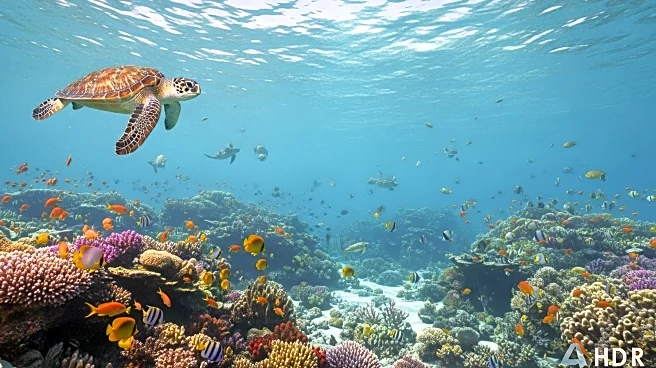What's Happening?
For the first time in over 40 years, the Gulf of Panama's seasonal upwelling system, which typically brings cold, nutrient-rich waters to the surface, has failed to occur. This phenomenon, usually driven by northerly trade winds between January and April, supports productive fisheries and helps protect coral reefs from thermal stress. The absence of this upwelling in 2025 has led to reduced temperature drops and lower productivity in the region. Researchers from the Smithsonian Institution's Tropical Research Institute, who led the study, suspect a reduction in wind strength as a potential cause. However, the exact reasons behind this anomaly remain unclear, and further investigation is needed to determine if human-induced climate change played a role.
Why It's Important?
The failure of the upwelling system in the Gulf of Panama could have significant implications for marine ecosystems and local fishing communities. Upwelling is crucial for maintaining the health of coral reefs and supporting fisheries by bringing nutrients to the surface. The disruption of this process may lead to decreased primary production, affecting the food chain and potentially triggering tipping points in ocean ecosystems. This event highlights the vulnerability of oceanic processes to climate disruptions, which could have long-term impacts on biodiversity and the livelihoods of those dependent on marine resources. Understanding the causes and potential recurrence of this phenomenon is vital for developing strategies to mitigate its effects.
What's Next?
Researchers are actively monitoring the situation through satellite and direct measurements, with plans for a research cruise to sample sub-surface waters early next year. A collaborative effort between the Smithsonian and the Max Planck Institute aims to analyze atmospheric and ocean data to better understand the causes of the upwelling failure and predict future occurrences. This research is expected to spur further interest and investigation into the reliability of tropical oceanic processes, which have traditionally been considered stable. The findings could inform future conservation and management strategies for marine ecosystems.








